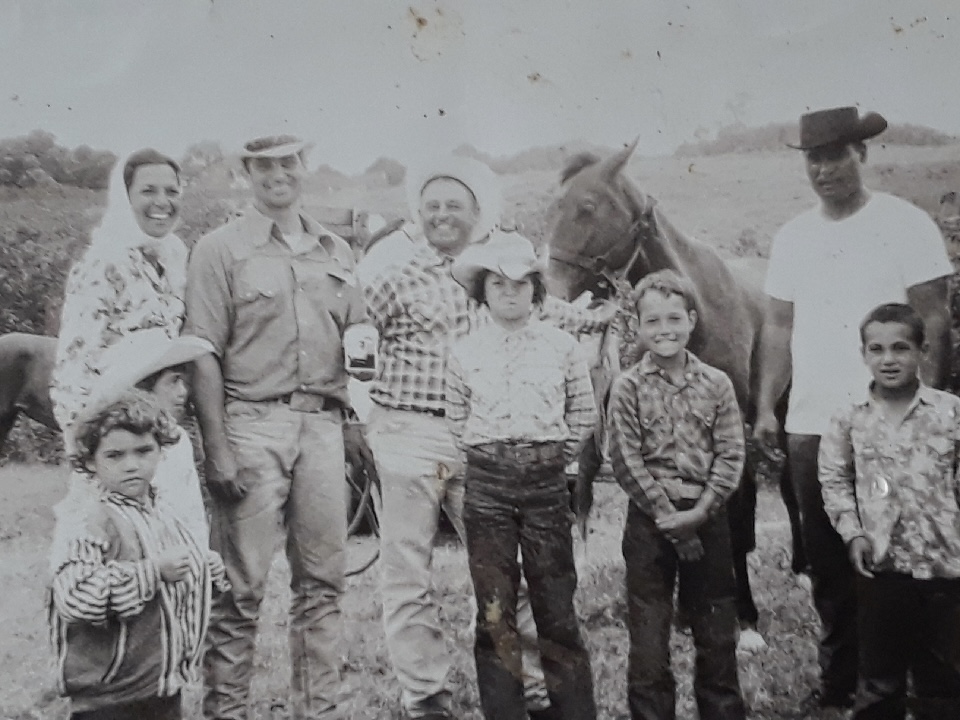First paragraph
“Lucky to live Hawaiʻi,” is a quote often heard around the islands. Being born and raised in Hawaiʻi is an incredible blessing--and not just because of the almost year-round perfect weather, the fresh air, magnificent ocean, killer surf, lush landscape, or ono (delicious) food. It’s also because of the rich cultures, stemming not only from the Hawaiian culture but also from the vast assortment of other cultures we see in the islands and are surrounded by every day: Asian, Pacific Islander, Hispanic, Black or African American, European and others. It is a truly unique place.
Hawaiʻi is made up of 46.54% Asian and Native Hawaiian & Other Pacific Islander. Although I mostly identify as Hawaiian, my ancestors also came from the Philippines, China, and Europe. This cultural diversity is actually common for local people in Hawaiʻi, making Hawaiʻi a true melting pot. Did you know that we even have our own recognized, common language because of the many different ethnicities we have here? Pidgin’ English, or Hawaiʻi Creole English, was created by the sugar plantation workers who needed a way to communicate with each other but only spoke their native tongue. Pidgin’ has a rich linguistic history and is still commonly spoken today.
A Rich Ohana (Family) History
Living in Hawaiʻi, the culture I mostly identify with is Kānaka Maoli (Native Hawaiian) and my ohana (family) has a rich history in Hawaiʻi-- our genealogy is traced and documented back to when these beautiful islands were first occupied by natives. Because of this, my Hawaiian ancestors had a hand in a few cultural practices we celebrate and participate in today, including:
- Lei making: My great-grandmother Sophia Kalili Ventura of Lāʻie was one of the first to spread the Aloha spirit by commercializing the lei, a wreath or necklace usually of flowers or leaves. She and two of her siblings founded the lei stands at Daniel K. Inouye Honolulu International Airport. They have since expanded with additional vendors, remain a popular spot for those seeking out leis, and you can find my ohana still perpetuating our culture at Sophies and Pua Melia lei stands.
- Shaka: Have you heard of the ubiquitous gesture we know today as the "Shaka"? The founder, Hamana Kalili, was my great-grandmother Sophieʻs brother. This gesture is popular around the world as a sign of goodwill and friendship.
- Hula, the cultural art of dance: My beautiful tūtū (grandmother) Queenie Ventura Dowsett is an acclaimed hula dancer who entertains and tells our story through her dance.
- Surfing and cowboys: My father is a paniolo cowboy/surfer from Waimea, Hawaiʻi. Growing up we were raised to work hard and love the ocean. That is where my love for surfing bloomed and now my sons as well.

As a people, we are strongly family-oriented, which is seen throughout our communities. When my Uncle Standford passed from this life into the next, it was overcast and rainy on a beach in Hawaiʻi, and tears stained the faces of those around me as we gathered together as a big ohana and said our aloha. Our voices rang out in solidarity, singing our family mele (song) “Pili pili mai, lawe mai e...” that was taught and handed down from generation to generation to tell our story so that our origin would never be forgotten. This mana (energy power)-filled mele is sung to our keiki (children) from the time of birth. It is sung at family weddings, paina (party) even funerals or when we need encouragement to remember where we came from. It is unique to my ohana.
Like many, we celebrate with music and dance at family gatherings or we kanikapila (impromptu jam session usually with a guitar or ukulele) on a Tuesday night. And the FOOD! Need I say more? However, the greatest way to celebrate my culture and those of so many here in Hawaiʻi is through our heart. The Kānaka Maoli are a people of aloha. Respect, kindness, hospitality and being inclusive are the attributes that we truly identify with and share with all those we meet.
Putting Aloha First
Being raised with putting aloha first is why I love working with the YMCA, because I get to live it out daily. As a Talent Manager with the YMCA of Honolulu Metropolitan Office, I am charged with the responsibility to recruit and hire like-minded individuals who identify with our mission, “To put Christian principles into practice through programs that build healthy spirit, mind and body for all.”
However, my journey with the Y started at the Mililani West Oahu branch as a youth leader and a child watch attendant, caring for and nurturing our community’s culturally diverse youth. I then moved on to the Healthy Lifestyle department as a member service representative, in which I had the opportunity to serve and care for our community on a larger scale. That role allowed me to work with our amazing members and volunteers who quickly became my ohana.
One memory that will never leave me is when I reluctantly had to leave the Y. My husband is an active duty service member and his next duty station moved us to Georgia. My home Mililani Y branch had a surprise going away potluck to bid me aloha, and the amount of people and homemade food there to bless me was overwhelming. This food represented the diverse culture of our Y volunteers and members carefully crafted to fill our opu (stomach) and bring us joy. I have since returned to Hawaiʻi and the Y, and even after all these years, you will still find our Ms. Lu and Chitra at the Mililani Y serving and volunteering. This is the Y.
Mahalo Nui Loa (thank you very much) for letting me share my story.

